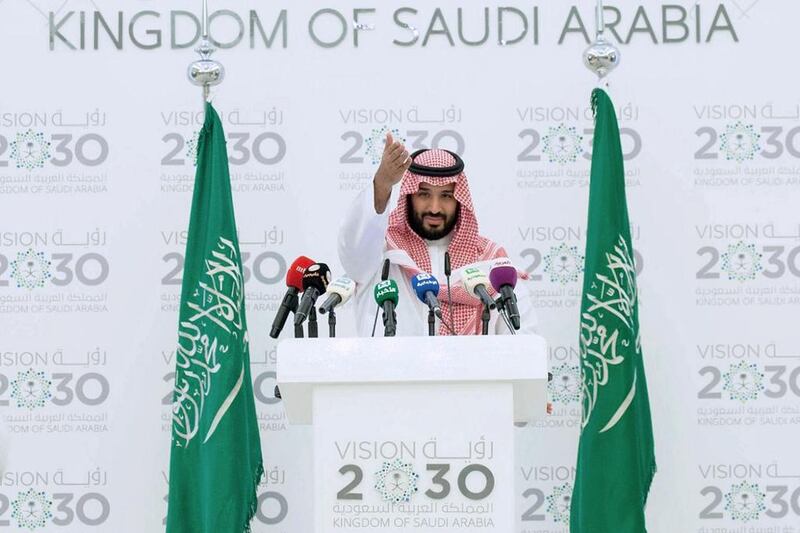The IMF yesterday signalled its approval of Saudi Arabia’s Vision 2030 plan, while it reminded the country to press ahead with public spending cuts and budget procedure reforms in a bid to close its widening spending deficit.
Concluding its annual monitoring visit to the country, Tim Callen, the IMF’s mission chief to the kingdom, called the economic reform plan “an appropriately bold and far-reaching transformation of the Saudi Arabian economy”.
Outlined by Deputy Crown Prince Mohammed bin Salman in a TV interview last month, the plan calls for the development of a domestic defence industry, the sale of a stake in national oil giant Saudi Aramco, and the introduction of new taxes. Prince Mohammed said that the country aims to end dependence on oil revenues by 2020. Further details of the plan are expected to be announced over the coming months.
Currently, the Saudi Arabian government earns about 77 per cent of its revenues from oil, according to IMF data. Prince Mohammed has suggested that transferring ownership of Saudi Aramco to the Public Investment Fund, a Saudi sovereign wealth fund, would technically make investment returns the source of state income. Both institutions should “enhance their transparency” and become integrated into regular budget procedures, the IMF recommended.
The IMF called on the kingdom to continue with public spending cuts, following an austerity budget announced in December that aims to trim spending by 13 per cent, or 130 billion Saudi riyals (Dh127.3bn), over the course of 2016. The country is set to run a deficit of 14 per cent this year, down from its 15 per cent deficit last year, assuming it sticks to this plan. In previous years, the kingdom has overshot spending targets after ministries exceeded their budget allocations.
The Saudi government promised to introduce new mechanisms to prevent this happening, including clawing back cash unspent on individual projects, and the launch of a “macro-fiscal unit”, a monitoring body in the Saudi ministry of finance. The IMF repeated its call for stricter budget monitoring in its statement, saying: “Further reforms to the fiscal framework that sets the annual budget in a medium-term framework and clearly establishes fiscal policy goals would support fiscal adjustment.
There are no signs of a slowdown in credit growth in the kingdom, despite falling government deposits in the mostly state-run banking sector, and a backdrop of rising interest rates, the IMF said. “The banking sector is strong and well-positioned to weather a slowing in the pace of growth,” Mr Callen said.
The IMF repeated its call for Saudi Arabia to introduce a slate of privatisations in a bid to encourage more private investment into the country. A McKinsey report published last year argued that the kingdom would need to attract US$4 trillion in new investment from both public and private sources to help it create 6 million new jobs by 2030.
Oil prices have staged a modest rally over the past few days, approaching $50 per barrel for the first time since last November. Moody’s recently downgraded the Saudi Arabia’s credit rating on the assumption that oil prices would average $33 per barrel this year.
abouyamourn@thenational.ae
Follow The National's Business section on Twitter





